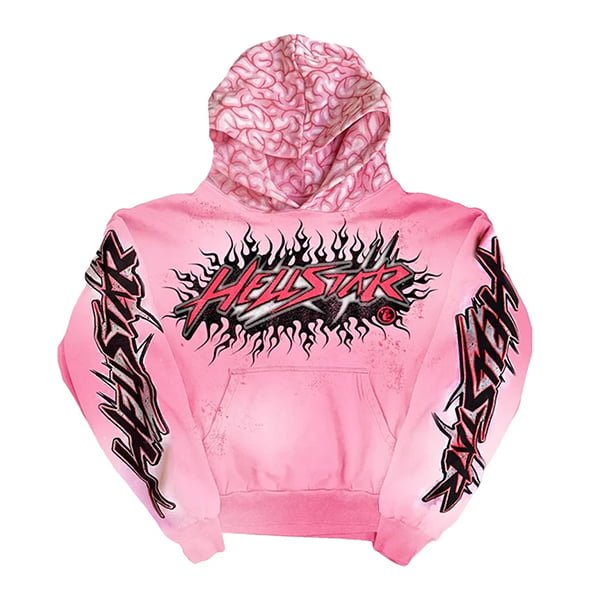Picture yourself running an electronics manufacturing business in Accra. You’re churning out circuit boards or gadgets, trying to keep up with orders while eyeing new markets abroad. Sounds exciting, right? But then you hit a wall—international buyers asking, “Is your product RoHS compliant?” If you’re scratching your head, wondering what that means, don’t worry. RoHS certification is your ticket to credibility, safety, and global competitiveness. It’s not just a badge; it’s a promise that your products are safe for people and the planet. Let’s unpack why RoHS certification is a game-changer for electronics and electrical equipment manufacturers in Ghana, and how it can set your business apart.
RoHS What’s the Big Deal?
RoHS stands for Restriction of Hazardous Substances, a directive born in the EU to limit the use of harmful materials like lead, mercury, and cadmium in electronics. Think of it as a health check for your products—ensuring they’re safe for users and the environment. For manufacturers in Ghana, RoHS certification means proving your products meet these strict standards, opening doors to markets in Europe, Asia, and beyond.
Why should you care? Because global buyers are picky. They want products that are not only high-quality but also environmentally responsible. In Ghana, where the electronics sector is growing—think of the mobile phone assembly plants popping up in Tema—this certification is your way to stand out. Without it, you risk losing contracts or, worse, getting hit with hefty fines in regulated markets. But getting certified? That’s where the real magic happens.
Ghana’s Electronics Boom: Why RoHS Matters Now
Ghana’s electronics industry is like a market stall that’s just starting to draw a crowd. From small-scale manufacturers in Kumasi to larger players in Accra, the sector is buzzing with potential. The African Continental Free Trade Area (AfCFTA) is opening new markets, and global demand for Ghanaian tech is on the rise. But here’s the catch: international markets have strict rules. A 2024 report from the Ghana Export Promotion Authority noted that over 50% of local manufacturers faced export barriers due to non-compliance with standards like RoHS.
RoHS certification bridges that gap. It’s not just about meeting regulations; it’s about building trust with buyers who care about sustainability. Whether you’re making power adapters or LED lights, certification shows you’re serious about quality and the environment. And in a country where “go green” is more than a slogan—it’s a movement—this is a win for your brand and your conscience.
What Does RoHS Certification Involve?
So, what’s the process like? Getting RoHS certification isn’t about jumping through endless hoops, but it does take focus. Here’s a quick rundown of what you need to do:
- Material Check: Test your products and components to ensure they’re free of restricted substances like lead, cadmium, or hexavalent chromium.
- Supply Chain Audit: Verify that your suppliers are RoHS-compliant. It’s like making sure the ingredients in your waakye are fresh—you check the source.
- Documentation: Keep detailed records of your materials and processes. This is your proof that you’re playing by the rules.
- Testing and Verification: Work with accredited labs to test your products. In Ghana, firms like SGS or Intertek can help with this.
- Ongoing Compliance: Stay vigilant with regular checks to maintain certification. It’s not a one-time deal—it’s a commitment.
The process might sound daunting, but it’s manageable with the right support. Plus, the payoff—access to global markets and a stronger reputation—is worth every cedi.
The Emotional Win: Pride in Doing Right
Let’s get real for a moment. Manufacturing electronics in Ghana is tough—you’re juggling tight budgets, power outages, and fierce competition. RoHS certification isn’t just about compliance; it’s about pride. When you know your products are safe and sustainable, you’re not just selling gadgets—you’re making a difference. You’re protecting customers, workers, and the environment.
I heard about a small manufacturer in Takoradi who went for RoHS certification. At first, they thought it was just another expense. But when they landed their first EU contract, the team was buzzing. “It felt like we were finally playing in the big leagues,” the owner said. That’s the kind of moment certification brings—a mix of relief, pride, and excitement for what’s next.
Busting Myths: RoHS Isn’t Just for Giants
Here’s a myth I hear all the time: RoHS certification is only for huge multinational companies. Not true. In Ghana, small and medium enterprises (SMEs) are getting certified and reaping the rewards. Whether you’re a startup making phone chargers or a family business crafting circuit boards, RoHS is within reach.
Another misconception? That certification is a one-off task. Nope. It’s an ongoing commitment to quality and safety. But here’s the good news: once you’ve got the systems in place, maintaining compliance gets easier. It’s like learning to drive—tricky at first, but second nature with practice.
How to Get Started with RoHS Certification in Ghana
Ready to take the plunge? You don’t need to go it alone. Here’s how to make RoHS certification work for your business:
- Partner with Experts: Work with certification bodies like SGS Ghana or Bureau Veritas. They guide you through testing and documentation.
- Train Your Team: Invest in RoHS training to ensure everyone knows the rules. It’s like teaching your team the recipe for success.
- Audit Your Supply Chain: Check that your suppliers meet RoHS standards. A weak link can sink the whole chain.
- Use Local Resources: Leverage labs in Ghana for testing. It’s faster and often more affordable than shipping samples abroad.
- Stay Updated: RoHS rules evolve, so keep an eye on updates to stay compliant.
You know what? Firms like Intertek offer workshops in Ghana that break down the process in plain language. Some even provide online tools to track compliance, which is a lifesaver for busy manufacturers.
The Payoff: Why It’s Worth the Effort
Let’s talk numbers. RoHS certification can open doors to markets that were once out of reach. A 2023 case study from a Ghanaian electronics firm showed a 30% increase in export orders after certification. That’s not just revenue—it’s growth, jobs, and a stronger reputation. Another company in Kumasi reduced returns by 15% after fixing RoHS-related issues, saving thousands in rework costs.
But it’s not just about the bottom line. Certification boosts morale. Your team knows they’re part of something bigger—building products that are safe and trusted worldwide. In Ghana’s competitive electronics scene, that’s the kind of edge that makes you a leader.
A Quick Side Note: It’s Like Building a Trustworthy Brand
Ever noticed how a well-run chop bar builds a loyal crowd? It’s not just the food—it’s the trust that every plate is clean and safe. RoHS certification is like that for your electronics. It’s a promise that your products won’t let customers down. Whether you’re making solar panels or earphones, you’re building trust, one safe component at a time.
Ghana’s Future: Leading with Quality
Ghana’s electronics industry is on the rise, and RoHS certification is your chance to lead the charge. With AfCFTA creating opportunities across Africa, certified manufacturers have a head start. You’re not just meeting standards—you’re setting them, showing the world that Ghanaian electronics are safe, reliable, and ready for business.
Imagine your products on shelves in Europe, trusted by customers who value quality and sustainability. That’s what RoHS certification can do. It’s not just about compliance; it’s about building a legacy for your business in Ghana’s growing tech scene.
Your Next Step: Don’t Wait to Act
So, where do you start? Reach out to certification bodies like SGS Ghana or Intertek—they’re pros at guiding manufacturers through the process. Train your team on RoHS requirements to get everyone on the same wavelength. And don’t let the upfront effort scare you. Quality pays off, and the sooner you start, the sooner you’ll see results.
You know what’s exciting? The moment you get that certification and land your first big export deal. That’s the power of RoHS certification in Ghana. It’s not just a standard—it’s your business stepping onto the global stage, ready to shine. Ready to make it happen?






